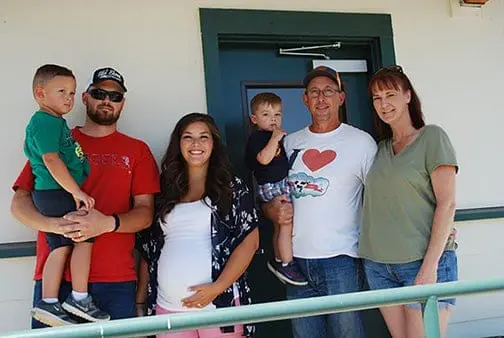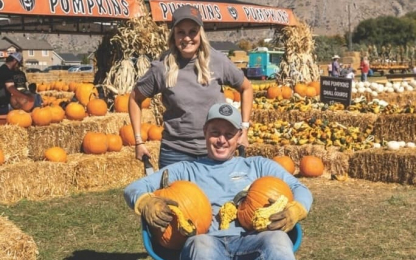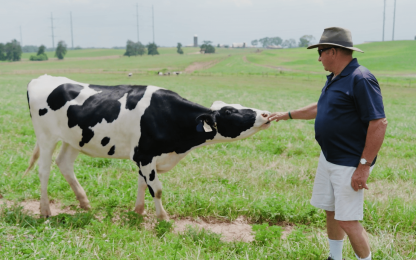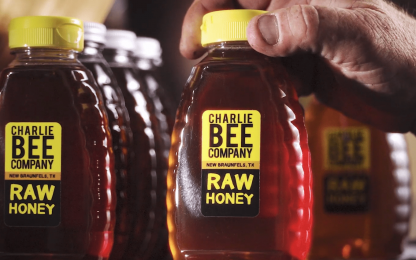Marc Duivenvoorden and his son turned Duivenvoorden Farms into a Grade “A” Raw Milk dairy operation.
Dairy has been in Marc Duivenvoorden’s family since his parents emigrated from Holland and started a dairy in Cottonwood, CA. Duivenvoorden Farms was a conventional dairy for 30 years. But after the 2008 economic downturn, they had to make the difficult decision to do something different.
Fresh Start
Marc and Seth were milking 60-80 cows a day and selling their milk exclusivley to a creamery, but they needed to expand. Seth, who majored in animal science at Chico State and worked at the university’s organic dairy, said their friends began asking them about raw milk while they were looking for new ideas. “We started researching herd share programs,” Seth said, “And used the help of the Farmer to Consumer Legal Defense Fund to establish a Herd Share Program and grew our business by word of mouth.”
The Duivenvoordens sold herd shares, meaning, every herd shareowner owned a one-tenth of one percent leasehold interest in the herd. For a set price, a milk consumer is guaranteed a gallon of raw milk a week. “After two years of doing herd shares, we were making more on our milk than we were when we took it to the creamery,” Seth said.
Quality over Quantity
They milk their cows once day. “It’s about quality not quantity,” says Seth. “When we milked twice a day, we noticed that in the mornings, when cows had rested all night, the milk was much richer, there was more butterfat. On the second milking, it was less creamy; there were less solids in the milk. “Most dairymen are scared of milking only once a day, thinking if you don’t milk twice a day the cows will get sick. But if you take out the stress of standing on concrete six to eight hours a day, and instead replace it with once a day two hours max, with the rest of the time on pasture there’s less stress. “Our cows are on pasture year-round. In the winter, when the pasture is in its dormancy stage, we feed grass hay and our own hydroponically grown barley sprouts.”
Seth describes their herd shareowners as “local, dedicated raw milk consumers who value sustainable farming and knowing their farmers. The herd shareowners come to the Duivenvoorden Farm once a week to pick up their milk. They bring their kids and make it an experience for the whole family. They see where their milk comes from and also see the cows, goats, pigs, cats and dogs. A lot of young families have educated themselves about where their food is coming from. These people are creating a relationship between their food and the farmer. ”
Making Adjustments
In 2015, the state pushed them to build a milk plant due to the number of cows they were milking for the herd share. So the family business plan shifted once again to building a milk plant and selling their milk in retail locations, now up to eight.
With help from Golden State Farm Credit, Marc Duivenvoorden and his son Seth have turned Duivenvoorden Farms into a Grade “A” Raw Milk dairy operation.
Seth and Marc were ready. “We were already set up to be a Grade A dairy, and we built the milk plant so we could sell our milk in retail outlets, as Grade A certified.” According to Seth, it took two years of research and planning, including learning what’s acceptable to the state. But with the help of Farm Credit, they installed solar and built a commercial kitchen. “We’re at the beginning of what I hope will be a raw milk business.”
This story is courtesy of the AG Mag magazine.



